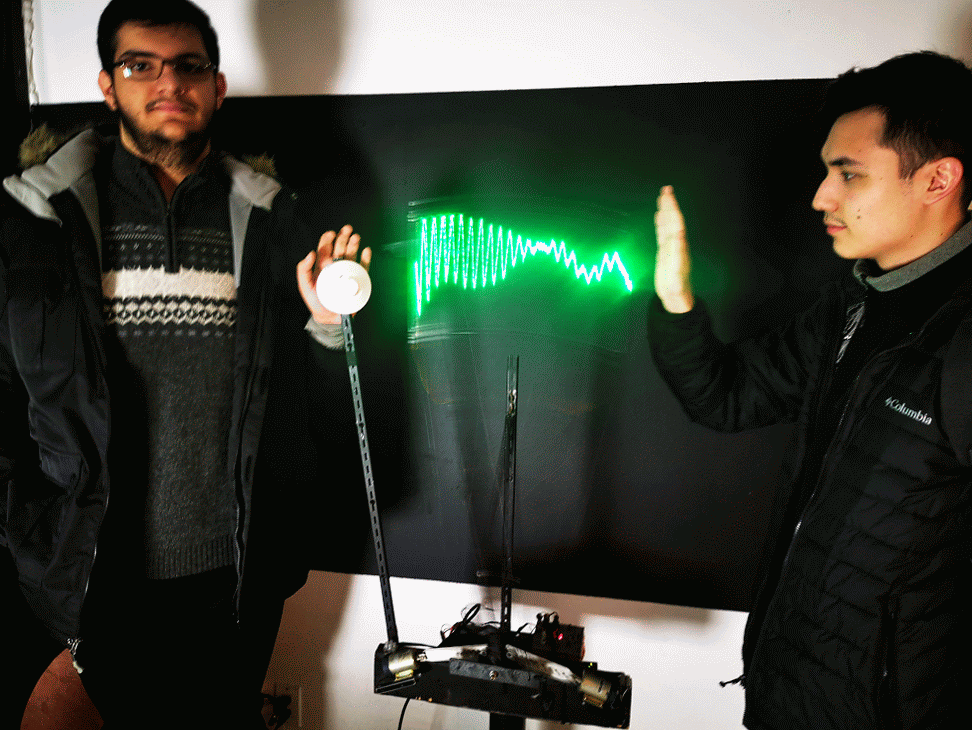
Example of meta-mentorship: Members of the Meta-mentorship 2020 cohort learn about electromagnetic wave propagation using the SWIM (Sequential Wave Imprinting Machine).
An option I offer to beginners is something I call "meta mentorship" (mentorship of mentors).
Meta mentorship is something I started at MIT in the 1990s, and brought to Stanford and Toronto.
The way it works is we pair up a 1st year student with a 3rd year student, and I mentor the two of you together.
The 3rd year student still remembers what it's like to be a frosh, and the two of you are still not too different in age. Having a peer, approximately your age, as a mentor, will accelerate learning tremendously.
If you can find an experienced 3rd year student who's really good at making things and hackathons, etc., who you get along well with, I'd be happy to mentor that person to mentor you. The benefit to that person is that the person gets top mentorship at teaching. Then I can meet with the 2 of you every once in a while, to guide the process overall, and you can meet and work with your mentor regularly.
Try to find a 3rd year student who is where you want to be in 2 years. Feel free to email introduce me to one or more potential 3rd year students, and I'll be happy to evaluate them as potential mentors.
The purpose of the jam is to witness the highest level of "on-stage" performance that can be achieved. This means that the lead person or persons jamming need to go full-blast without slowing down to explain things. Its like a music recital where the mentored members of the group are an audience for the performer or performers. That means that the others are quiet and attentive, not reading other books or references or social media, but simply watching as observers. Its like a recital in classical music but this is jazz. The mentees don't ask a musician questions and a musician doesn't slow down to explain things during the performance. Mentees learn by passive observation initially during the jam and then they followup later with the performer(s) to ask them questions offline.
The performer(s) come(s) in well-prepared with all the tools and pieces (s)he or they need, and as much can be prepared offsite as (s)he or they deem necessary to put on a good show. The show should be about 90 minutes in duration where the performer(s) come(s) in and generates a real "wow" factor that everyone else in the room notices and applauds. This performance will result in some great pictures, and we'll shoot a magazine-cover quality photo of the performer(s) that (s)he or they can use for their profile picture, on a CV, or the like. Once that is done, we'll then proceed to identify core strengths that the group has. Once we identify core strengths, we'll write a series of summer or part-time grant proposals.

Example of meta-mentorship: Members of the Meta-mentorship 2020 cohort learn
about electromagnetic wave propagation using the
SWIM (Sequential Wave Imprinting Machine).